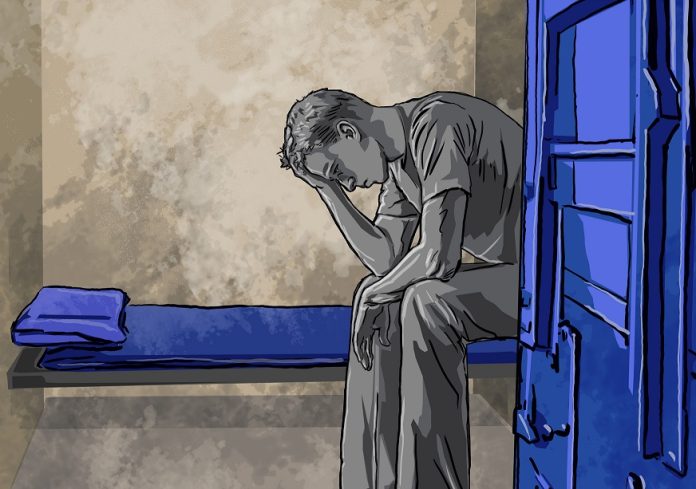Guidance for police dealing with children in custody must be overhauled, a new study has concluded, where for the first time in England and Wales, researchers engaged with child suspects while they were detained in police custody
Funded by the Nuffield Foundation, researchers from the University of Nottingham examined the impact of the Police and Criminal Evidence Act 1984 (PACE) on the detention and questioning of child suspects.
They found that Children were held in custody on average for 11 hours and 36 minutes (with 54 per cent being detained overnight), and 80 per cent requested legal advice
With children left alone in cells for many hours, their experience of police custody is harsh and punitive
The majority of children interviewed as part of the study view police custody as part of their punishment – this was also the view of some police officers, with a presumption of guilt rather than innocence.
However, “no further action” was recorded against the majority of child suspects
Some children are detained for their safety with police unable to engage health and social welfare agencies to support the child at short notice – however, police then go on to interview them about an alleged offence.
The academics conclude that major reforms to the PACE guidelines are needed and enhanced legal protections for child suspects are required. They recommend adopting a “Child First” approach, which means viewing child suspects as children rather than adults and/or “offenders”, encouraging collaboration with them while they are detained, and seeking to maximise opportunities to divert them away from the stigma of coming into contact with the criminal justice system. They say detention should only be used as a last resort.
The experts argue that a Child First approach would have the aim of reducing the number of children brought into police custody and would instead require the adoption of diversion, minimum intervention and problem-solving and restorative approaches. For those children who must be detained, a child-focused and rights-based approach needs to be adopted in custody that differentiates children from adult suspects.
Lord Carlile of Berriew CBE KC, Chair of the study’s Steering Group, continued: “The comprehensive set of measures set out in this report provides a framework within which changes to PACE can be piloted by researchers in partnership with the police and other agencies.”
The study found that while police custody officers have the power not to authorise the detention of someone arrested and brought into custody if they deem it unnecessary, this occurred in less than 1 per cent of cases – despite, in the majority of cases, no action being taken at the end.
In relation to the final case outcome, while 21 per cent of children were charged and 14 per cent received an out-of-court disposal (such as a caution), “no further action” was recorded against 56 per cent of the child suspects and a further 5 per cent of cases remaining outstanding.
In all cases observed by the researchers, once a child was detained, even if custody was effectively being used as a place of safety (due to the police being unable to engage health and social welfare agencies in supporting the child at short notice), the priority for the police was to interview the child about an alleged offence.
Under PACE guidelines it is mandatory for a child to have an appropriate adult to support them while they are detained but, generally, due to restrictions in them gaining access to police custody, the study found that contact with the child was limited until just prior to the police interview.
Similarly, in most cases where legal advice was requested, a child’s first contact with their lawyer tended to be just before the police interview. The researchers argue that these delays are not acceptable, not least because a child needs access to these adults as soon as practicable following detention so that they can help them to understand and exercise their legal rights.
With children being left alone in a cell for many hours waiting to be interviewed, they experienced police custody as harsh and punitive, fostering resentment and undermining trust in the police and the wider youth justice system.
The academics say that they are concerned that not only did the majority of children in the case studies view police custody as part of their punishment, but this was also the view of some police officers, with a presumption of guilt rather than innocence.
The researchers suggest that, with no action being taken in the majority of cases, the early involvement of the lawyer, appropriate adult, health and/or social welfare services could have led to cases being resolved more quickly or being taken out of the criminal process altogether.







